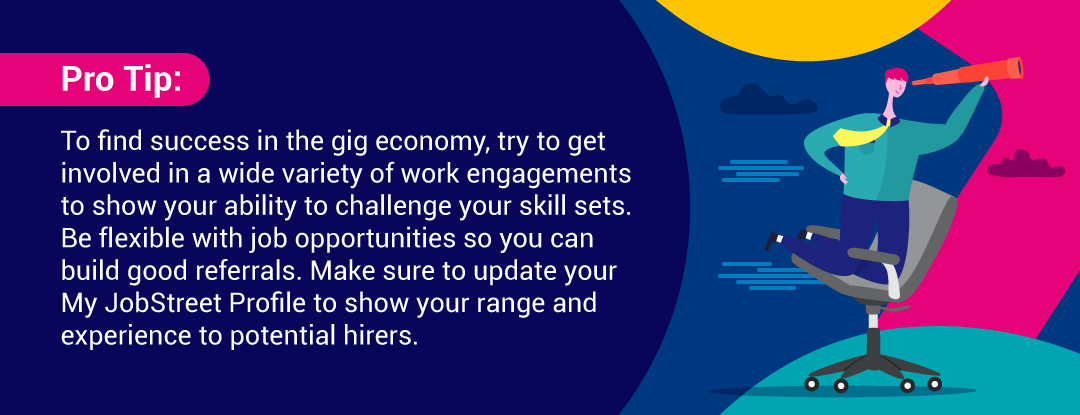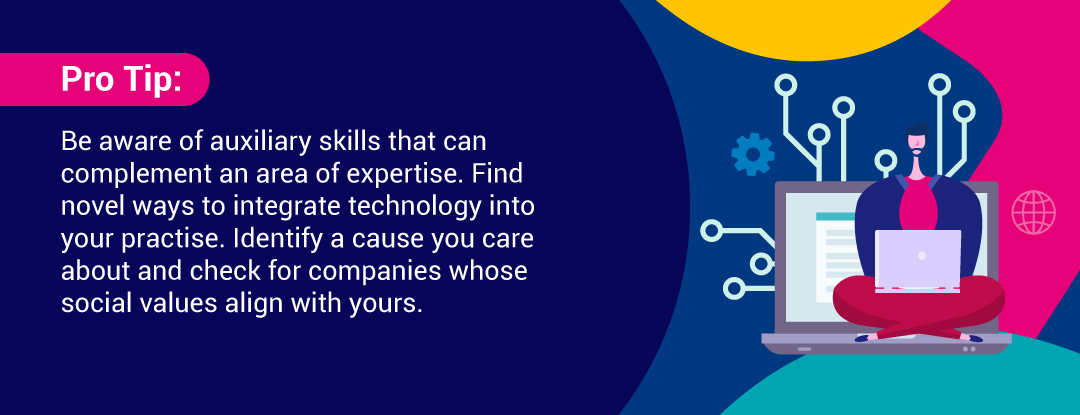Win Over The Future With These Workforce Trends
Dear Singaporean jobseekers, how ready are you for the future?
A webinar presented by Ken Tan, Head of Strategic Client Management, at PERSOLKELLY at JobStreet's recent Virtual Career Fair from 14-25 June 2021 shed valuable insight into Singapore's ever-evolving workforce.
Operating in 45 offices across 13 markers, PERSOLKELLY is one of the largest recruitment companies in the Asia Pacific. It is a joint venture between PERSOL Holdings, a recruitment firm in Japan, and Kelly Services Inc., a global leader in workforce solutions.
According to Ken, results from PricewaterhouseCoopers' research reflect how today's workforce perceives the future: 60% of the respondents believe that "few people will have stable, long-term employment in the future" while 74% said they are ready to learn new skills or retrain to remain employable. Lastly, 73% of those surveyed think technology can never replace the human mind.
Similar conclusions can be drawn from the three-part Decoding Global Talent reports conducted by JobStreet in collaboration with the Boston Consulting Group and The Network. From 6,280 Singaporean respondents, 62% shared that they will retrain in any case while 36% said they were willing to retrain if necessary.
Moreover, despite Singaporeans' perceived threat from AI--the highest in Asia--a McKinsey report showed that automation can only replace 45% of activities currently carried out by humans and only 5% of the workforce could completely be automated by technology.
Here are some highlights from the webinar that could help you future-proof your career.
What Kind of Workers Will the New Gig Economy Need?
The Rise of Contingent Workers
Hiring people for a fixed period is on the upswing. These are consultants, freelancers, and contractors that are hired externally for a contracted period.
In the APAC region, 84% of talent managers are employing remote talent via the gig economy. This hiring pattern is reflective of a global trend. Google, for example, employs 53% of its talent externally, with the remaining 47% being internal hires.
On-demand Staff
A growing number of companies engage their staff only when they are needed. This non-standard work model gives both employees and employers their own set of advantages. Employees have more flexibility in their schedules while employers can keep their labour costs down.
One example of a company that hires on-demand staff is Marks & Spencer in the UK, which began employing 20,000 flexible workers in Q4 of 2018 and continues this practise today.
Slash and Unbundled
Tasks that are usually carried out by one person are now spread across several employees.
This trend gives way for employees to act like consumers of jobs since fewer benefits and less compensation are offered. With this format, employers need to strengthen their brand in order to attract the appropriate talent they require.
What Talent Will Crop Up in the Future?
The T-Shaped Talent
An internal term coined by McKinsey in the 1980s is making a comeback. Being T-shaped is about having deep skills in one area complemented by a broad base of supporting skills.
T-Shaped employees will continue to be in high demand because they add value across various functions. They have the ability to innovate while building relationships within the organisation.
One example of exemplifying T-shaped skills is becoming a subject matter expert, where you are seen as an authority in a field and you know how to apply your specialty across the company's divisions.
Digital Natives
Born between 1995 and 2010, Digital Natives grew up in the digital age. They are different from Digital Immigrants who acquired familiarity with digital systems when they became adults.
This younger generation of workers is attracted to organisations that allow them to be self-reliant and creative. They see multitasking as a measure of efficiency and are more social and pragmatic than previous generations.
Socially Aware Cohorts
Employees of the future will put a premium on social engagement in the workplace.
An active Corporate Social Responsibility program is key to keeping these talents. This is also emphasised in the second Decoding Global Talent report which showed around 60% of respondents saying that they prefer to work in companies that are involved in environmental and social causes.
Moreover, since mental health has become more and more prevalent, these candidates also deem well-rounded health benefits as important.
What Skills Do You Need for Tomorrow's Employer?
Adaptive Skills
These are skills that allow you to adjust to shifting work environments and grow throughout your career. Some examples are your ability to collaborate with others as well as stay open-minded and self-motivated.
Digital Skills
It is a certainty that remote work will be around for a while. As a result, there is a big shift in being more reliant on digital solutions.
A Reimagining of Core Skills
In 2019, Skills Future SG embarked on a review of 16 generic abilities. Soft skills figured high on this list of critical competencies. To prepare employees for future work, three groups were deemed most essential:
- Thinking critically involves thinking broadly and creatively. It recognises cognitive skills as the root of technical skills development and progression.
- Interacting with others is about learning from other people and building a shared understanding of a problem.
- Staying relevant means paying attention to trends and being motivated to develop one's technical skills.
Also Read: Here are 10 ways to gain new work experiences to help you acquire new skills
At JobStreet, we believe in bringing you #JobsThatMatter. As a Career Partner, we are committed to helping all jobseekers find passion and purpose in every career choice. And as the number 1 Talent Partner in Asia, we connect employers with the right candidates who truly make a positive and lasting impact on the organisation.
Discover Jobs That Matter. Visit JobStreet today.
About SEEK Asia
SEEK Asia , a combination of two leading brands JobStreet and JobsDB, is the leading job portal and Asia's preferred destination for candidates and hirers. SEEK Asia's presence span across 7 countries namely Hong Kong, Indonesia, Malaysia, Singapore, Thailand, Philippines and Vietnam. SEEK Asia is part of the Australian Securities Exchange-listed SEEK Limited Company, the world's largest job portal by market capitalisation. SEEK Asia attracts over 400 million visits a year.
About SEEK Limited
SEEK is a diverse group of companies, comprising a strong portfolio of online employment, educational, commercial and volunteer businesses. SEEK has a global presence (including Australia, New Zealand, China, Hong Kong, South-East Asia, Brazil and Mexico), with exposure to over 2.9 billion people and approximately 27 per cent of global GDP. SEEK makes a positive contribution to people's lives on a global scale. SEEK is listed on the Australian Securities Exchange, where it is a top 100 company and has been listed in the Top 20 Most Innovative Companies by Forbes.


